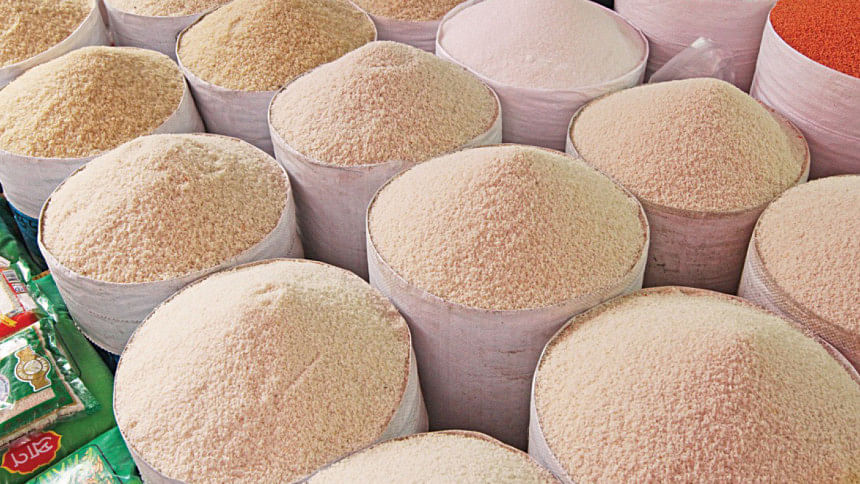New policy for faster rice import

To replenish the country's fast-depleting food stock, the government has approved a proposal to lessen the time of bidding process by over a month for ensuring a faster import of rice.
The Cabinet Committee on Economic Affairs in a meeting yesterday approved in principle the proposal that slashed the time from 42 days to 10 days starting from the publication of advertisement in newspapers.
While addressing a briefing virtually, Finance Minister AHM Mustafa Kamal told reporters that the measure was taken since there was less rice production this year.
Rice production was hampered due to natural disasters like flood and excessive rain, he said, adding, "We are self-sufficient in food production. But when there are natural disasters, imports are required."
The minister, however, said the food ministry was instructed to import rice on a limited scale. Otherwise, it would impact the market, he added.
Meanwhile, the government has taken an initiative to import 5.5 lakh tonnes of rice through international open tender.
The fresh move came weeks after the government initiated the process to import 6 lakh tonnes of rice. Of the total, 3 lakh tonnes will be imported through international tender and 3 lakh tonnes on government to government (G-to-G) basis.
Agreements have already been signed to import the 3 lakh tonnes through tender.
Out of the 3 lakh tonnes to be imported on G2G basis, the government has already inked an agreement with India to import 1 lakh tonnes of boiled rice.
Signing an agreement with Myanmar is under process to import 1 lakh tonnes of Atap rice.
Proposal of importing the rest 1 lakh tonnes of boiled rice from India under G2G has been sent to the Cabinet Committee on Government Purchase.
The government imported 98.80 thousand tonnes of rice till March 2.
According to the food ministry, the country's food stock was at only 6.44 lakh tonnes till February 28 -- 5.34 lakh tonnes of rice and the rest wheat.
The ministry considers the stock of around 10 lakh tonnes of rice safe.
In July last year, the government had a stock of 11.88 lakh tonnes of rice.
During the same period in 2019, the food department had a stock of 16.74 lakh tonnes of grains, according to data from the food ministry's food planning and monitoring unit.
The stock started falling in June last year as distribution under the social safety net and other government programmes continued despite sluggish procurement of food grains.
Farmers and millers refrained from selling food grains to the food office at the government-fixed rates at prices were soaring.
An increase in distribution of cereal among those affected by the Covid-19 pandemic and recurring floods also contributed to the drop in the stock, said food ministry officials.
Procurement Situation
The Directorate General of Food sought to procure 19.5 lakh tonnes of Boro paddy and rice from April 26 to September 15 last year. But it could buy only 9.09 lakh tonnes during the period.
It is also going to miss its Aman procurement target this season.
The directorate's target was to buy 8 lakh tonnes of grain during Aman season between November 20 last year and February 28 this year. It, however, managed to buy only 73,000 tonnes till February 25.
The government failed to achieve the procurement target mainly because it fixed paddy and rice prices lower than production costs at the farm level.


 For all latest news, follow The Daily Star's Google News channel.
For all latest news, follow The Daily Star's Google News channel. 



Comments